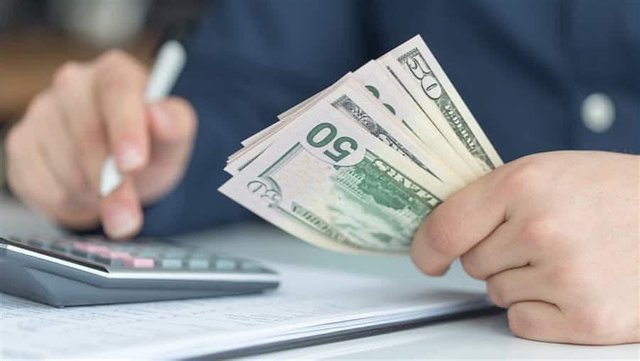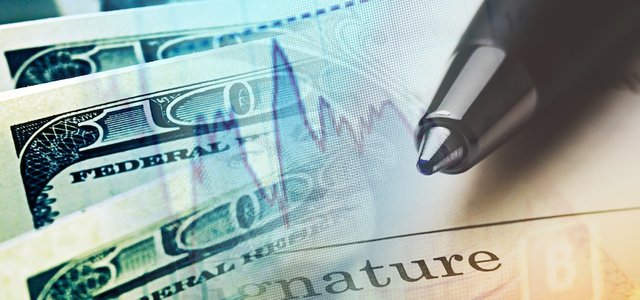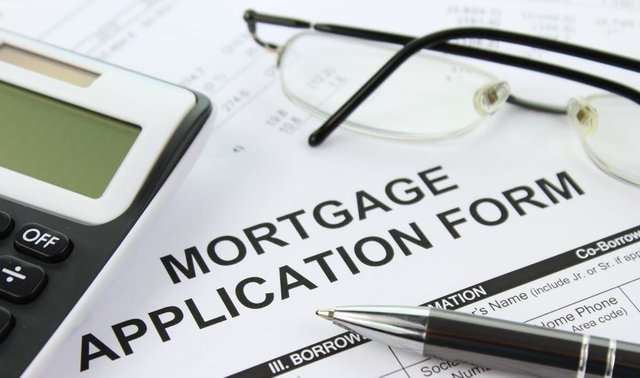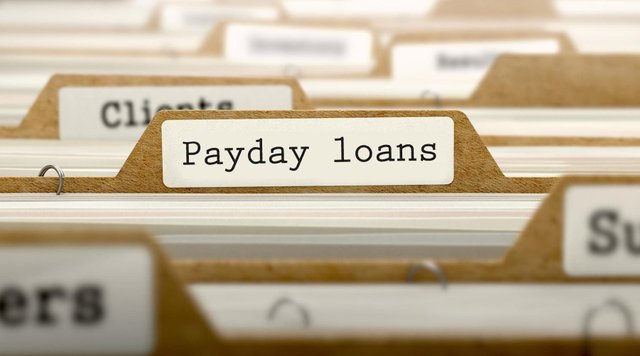Good Debt vs. Bad Debt: How To Use Debt To Increase Your Earning Potential

Good Debt vs. Bad Debt: How To Use Debt To Increase Your Earning Potential
Dave Ramsey, a personal finance educator, is a popular personality known for adapting the debt snowball and a philosophy of destroying debts at all costs. Dave Ramsey often points out the negative consequences of debt, especially with banks and credit card companies that are taking advantage of people. These companies tend to drive regular people into becoming a modern-day slave to their credit card debts. However, what Dave Ramsey refuses to tell people is that a good debt actually exists.
Before I graduated from grad school and lived in Atlanta to take up my first job as a financial planner, I decided to sell my house. This happened before the burst of the housing bubble and luckily, I managed to sell the property with a little profit. The profit wasn’t huge, but for me, it was a lot. I can never forget that moment when I walked away from the bank and was trying to pinch myself to see if I was only dreaming of having so much money into my account.
At that point, I had to make a choice – pay off my student loans Dave Ramsey style, or invest the money. I’m someone who believes that one of the best ways to earn money is to own as many stocks as you can. Thus, chose to invest the money in stock mutual funds instead of paying my student loans. Almost immediately, the stock market tested such decision because the Great Recession took place and stock prices were cut down to as low as 50% off. All the hard work that I had put into building the house, including the time spent in renovating and doing some improvements, went down the drain in only a few months.
I continued to stay invested and eventually, my investments inched back up. Looking back now, the market has since gone to 120% before the crash or around 8% per year return. The interest rate of my student loans is lower than that and I also get to receive tax incentives from the interest. Thus, I came out a winner in the end.

Dave Ramsey Was Both Right and Wrong
Is Dave Ramsey correct about living a debt free lifestyle or is he wrong about it? In my situation, I was mathematically right and Dave Ramsey was wrong. In my own point of view, the long-term return of investing in stocks could earn me more money over time, which would be enough to pay off my student loans. If you compare these two options in that given perspective, it’s clear to see which one of us was right.
But as I got older and became a little bit wiser, I saw many people run into problems by thinking the way I was. Perhaps if the world would work in the same way as a spreadsheet, the answer would be to invest your money and pay the debt in the future, for as long as you’re certain that your earnings will be more than the interest rate of your debt.
Unfortunately, life is not like a spreadsheet.
Still, unlike Dave Ramsey, I truly believe that there are certain situations in life where it may be acceptable to acquire some debts instead of living a debt free lifestyle. The key is in knowing the proper way to use your debt to improve your current financial situation instead of destroying it.
Now that I’m older, I have started to appreciate the Dave Ramsey perspective of living a debt free lifestyle. He would often point out a quote from the book of Proverbs that says, “The borrower is a slave to the lender.” Improper way of using debt will most likely lead to a pattern of living from paycheck to paycheck. It’s unfortunate to know that abusing credit has become a tragic financial epidemic. Yet, I do believe that debt can do you good if you use it properly. In fact, it has benefits for both the lender and the borrower as well.
In order to properly and carefully use credit, we must first try to understand how it really works before we can truly live a debt free lifestyle.
Debt Free Lifestyle: Credit Overview
Just like most of the things that we have invented, humans came up with the idea of credit in order to make life even more convenient. Just like Dave Ramsey says credit is neither good nor bad. It’s just basically a tool that one can use wisely or not. Several thousands of years ago when humans were still practicing the barter system, people had to exchange one good for another in order to get what they wanted in return. For instance, if you’re a wheat farmer and you wanted to exchange your wheat for a barrel of wine owned by your neighbor, then you could encounter a problem. You had to wait for your wheat to be harvested before you could get the wine from your neighbor.
So, what happens if you badly needed the barrel of wine as soon as possible? You could probably ask your neighbor to give you some wine now in exchange for a certain amount of wheat in the future when harvest time would come. And this is how credit was invented. This simple exchange of goods was an early form of credit since the wheat farmer was getting a product immediately based on something that he would earn in the future. He was basically accelerating future income at present.
<iframe src="
Good Debt vs. Bad Debt
Good debt vs. bad debt is one of the most important concerns in this article. Credit in moderation is good. In fact, it’s beneficial for the overall economy. However, if abused, it can be bad for your financial health. For most people, abusing credit is easy to do because banks and credit card companies are constantly throwing money to unsuspecting individuals.
Thankfully, there’s an easy way to determine if a particular credit is good or bad in achieving a debt free lifestyle. As explained earlier, credit is borrowing from your future income in order to purchase something today. You definitely don’t want to borrow from your future self in order to buy something today that will not increase your ability to pay such debt in the future, right?
If this is confusing, then let me try to elaborate it even further. If you purchase a cup of coffee with your credit card, for instance, you’re borrowing from your future income in order to afford the coffee today. Since you currently have no cash to pay that coffee today, you will end up charging it on your credit card and buy the coffee to your heart’s delight.
But this credit will become your problem in the future, right?
The problem is not the fact that you have purchased something on credit but the problem is that the product you bought on credit will not do something to help increase your ability to earn more in the future.
Thus, the more things you acquire on credit today that you already cannot afford, the more you will be making life difficult for your future self to be able to get ahead and live a debt free lifestyle.
Three Reasons For A Debt Free Lifestyle:
Your future self will need to spend money on everyday expenses.
Your future self will now have to pay for the credit you just made.
Your future self has to bear the interest that comes from the credit you made.
On the other hand, you can also choose to purchase something on credit that can help to increase your future income, and this is exactly what a good debt is like. If you’ll purchase a real asset, something that can generate more income in the future, then you know that you will have the money to be able to pay back such debt, including the interest and other charges. You don’t necessarily need to live a Dave Ramsey debt-free lifestyle. The key is in buying something that can generate additional income so you’ll be able to afford to pay such credit while also having some leftover.
For instance, you have used a good debt to buy a rental property. This property that you bought will generate income every month. Thus, you will end up earning more money in the future because of this property, and this works towards living a debt free lifestyle in retirement.
This is basically the main difference between a bad debt, a good debt, and simple debt free living.
The main point here is that there’s nothing wrong with debt. In fact, even Dave Ramsey would acknowledge that it is an important aspect of today’s economy since it allows for a faster and much easier way of exchanging goods. And as you know, a fast-moving economy is also a high-producing economy. This means that more jobs will be generated and the economy will enjoy further growth.

Types Of Good Debt
Here are more examples of what a good debt is, but with a few exceptions. While a student loan is technically a good debt since getting a degree could potentially increase your income in the future, enrolling for a degree in basket weaving that will cost you $200,000 is probably not a good example of a good debt, nor living a debt free lifestyle. In general, a student loan can be considered a good debt only if it can help you build your skills, allowing you to earn more in the future.
Are you able to acquire the same skills without having to go into debt? Perhaps you can and that’s actually an ideal thing to do. Yet, I still believe that student loans should be considered as a much better form of debt unlike credit cards regarding debt free living tips.
Here are some of the most common examples of good debts.
Student Loans - You need to be careful with acquiring student loans because some people often end up taking out huge student loans for a particular degree that won’t help them land a good job in the future.
Mortgages on Rental Property - This is a good debt but don’t overextend yourself. You should always keep enough equity that could protect you in the event of a market crash. You must also have some cash reserves in case of vacancies and emergency repairs.
Business Loans - Just like with any debt, a business loan has the potential to be abused. However, if you believe that the business will turn out to be a success, acquiring debt will be a much faster way to build your business.
Credit Cards - This is only considered a good debt if it’s strictly used as a cash management system and not to finance lifestyle purchases. Basically, if you can afford to pay your credit card in full at the end of the month and on time, then this can be good for your financial situation. Using a credit card wisely means you could rack up several rewards while also building your credit history at the same time. The key is in planning and discipline.

Examples Of Bad Debt
It’s unfortunate to know that there are more ways to misuse debt than using it properly.
Here are some examples of bad debts that make it harder to live a debt free lifestyle.
Credit Cards - Buying things you know you cannot afford to pay could ruin your financial future. Interest rates from credit cards are massive. They can go as much as 20% and paying just the minimum amount will only prolong your financial agony.
Payday Loans – Payday loans need no further explanation. These types of loans are good examples of bad credit.
Car Loans - Dubbed as America’s number one wealth killer, a car loan could cost you almost $500 per month. If this money is invested properly, it could help you make $1 million in 40 years!
Other Consumer Credit - Purchasing any asset on credit that’s expected to depreciate, such as electronics, furniture, and gadgets is just a dumb thing to do unless they are with zero percent interest. Yet, it’s still not a good thing to do since you could get used to buying anything you want now without feeling the pain of trying to save up for it.
Debt Can Increase Returns But It Also Increases Risk
Let me give you a rosy picture of a good debt. I would like to add one more clarifying information. From the example above, I have shown that adding a good debt can possibly double the return of a rental property investment. While this may be true in some sense and a common financial principle, you should keep in mind that leverage can work in both the downside and the upside. A classic example is the Great Financial Crisis. During this time, CMOs and other complex debt instruments leveraged several banks at 20:1 and even 30:1. When the economy went back to normal, many of these banks went bankrupt or had to be bailed out.
This scenario can also be applied on a personal level. Debt may be a powerful tool, but for both bad and good debt. If you plan to acquire good debt, make sure you use it cautiously and sparingly.
Posted from my blog with SteemPress : http://financeandmarkets.com/dave-ramsey/
This user is on the @buildawhale blacklist for one or more of the following reasons: